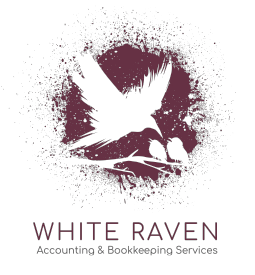Incorporating a business in Canada opens the door to many advanced tax strategies, and one of the most misunderstood is the holding company. While large corporations have used holding companies for decades, small business owners, real estate investors, and incorporated professionals are increasingly exploring them as a way to protect assets, reduce taxes, and plan for long-term wealth.
So, what is a holding company in Canada, and why might you need one? In this guide, we’ll break it down in plain language, including how it works, tax advantages, potential drawbacks, and how to know if it’s the right fit for your business.
What Is a Holding Company in Canada?
A holding company is a corporation that doesn’t actively sell goods or services—it exists to hold assets. Most commonly, it owns shares in another corporation (usually referred to as an operating company or “OpCo”). But it can also hold real estate, investments, or even intellectual property.
This is different from an operating company, which is responsible for day-to-day business activities. For example, your OpCo might be the corporation that runs your HVAC company, law practice, or ecommerce store. Your HoldCo simply owns shares in that business and possibly collects dividends or rental income.
This separation between the “work” and the “wealth” is what gives a holding company its strategic power.
Why Business Owners Use Holding Companies
While setting up a second corporation may sound excessive, there are plenty of reasons why a holding company structure can be beneficial, even for smaller businesses.
Here are some of the most common uses:
- Asset protection: By transferring profits from your operating company into a holding company, you can shield them from creditors, lawsuits, or financial risks tied to your business operations.
- Tax planning and deferral: A holding company can receive tax-free intercorporate dividends, which allows you to defer paying personal tax until you need the money personally.
- Succession planning: It’s easier to transition ownership or divide corporate assets among children or partners using a HoldCo structure.
- Investment flexibility: Your HoldCo can invest in real estate, stocks, or other businesses, often without affecting the main operations of your business.
- Sale of a business: Used correctly, a holding company can help you access the Lifetime Capital Gains Exemption (LCGE) when you sell shares of your operating company, potentially exempting up to $1 million in gains from personal tax.
Tax Advantages of a Holding Company
The main tax benefit of having a holding company is the ability to move after-tax profits from your operating company into your HoldCo through tax-free intercorporate dividends. Here’s why that matters:
- You keep profits growing: Instead of paying yourself and getting taxed personally, you can let profits accumulate inside the HoldCo and reinvest them into real estate, market investments, or other companies.
- You control the timing of taxation: You don’t pay personal income tax until you withdraw funds from the HoldCo, giving you more flexibility over your tax rate each year.
- More efficient succession planning: You can use shares of your holding company to split ownership with a spouse or adult child, or structure a future sale in a more tax-efficient way.
This strategy works best when you already have a profitable corporation and you’re not withdrawing every dollar to fund your lifestyle. If your business is just starting out, you may benefit more from understanding corporate tax basics first.
Holding Company vs Operating Company: What’s the Difference?
The operating company runs the business, earns revenue, and incurs expenses. It takes on risk—from employee disputes to customer complaints to commercial leases.
The holding company does none of that. It simply owns things: shares, real estate, or other investments. That’s why people often refer to it as a “safe house” for wealth.
In a typical setup:
- OpCo earns a profit
- It pays corporate tax on active business income (usually 9–12.2% on the first $500,000 in Canada)
- Then it pays a dividend to HoldCo, tax-free
- HoldCo holds onto that money, reinvests it, or pays it out to you later as a personal dividend (taxable when received)
This kind of separation is especially helpful for businesses that are growing quickly or taking on significant risk. If your current bookkeeping system isn’t set up to track multiple entities, now’s a good time to make sure you’re following basic bookkeeping practices that can scale.
Potential Drawbacks of a Holding Company
A holding company isn’t a silver bullet. There are some trade-offs to consider:
- Extra setup and compliance costs: You’ll need to incorporate a second corporation, file another annual tax return (T2), and maintain two sets of books.
- No tax savings without retained earnings: If your operating company doesn’t earn enough to leave money behind after paying you a salary or dividend, a HoldCo won’t help.
- Passive income rules: If your holding company earns too much passive investment income (over $50,000 per year), it could affect your operating company’s eligibility for the small business deduction.
- Redundancy for small earners: If you take all profits personally each year to cover living expenses, setting up a HoldCo likely won’t deliver much value.
Knowing how to spot these pitfalls—before they cost you—is a key part of business success. We’ve rounded up other common small business mistakes that can hurt your growth if you’re not careful.
When Should You Consider a Holding Company?
A holding company makes the most sense when:
- Your corporation consistently earns more than you need personally
- You want to invest retained earnings instead of taking them as income
- You’re planning for long-term growth, succession, or asset protection
- You’re preparing to sell your business and want to structure for LCGE
This structure also works well for real estate investors who buy property through corporations, and professionals (like doctors, dentists, and lawyers) who are incorporated but don’t need to draw all their income right away.
How to Set Up a Holding Company in Canada
Setting up a HoldCo is similar to any other incorporation. You’ll need:
- A unique business name (or numbered company)
- Articles of incorporation
- A CRA business number
- Bank accounts for the new entity
The tricky part comes when you start transferring shares or assets between entities. That’s where you’ll want to work with a CPA and a legal professional to ensure you stay compliant and avoid triggering unintended tax consequences.
It’s also critical that your bookkeeping is tight. Managing two corporations means tracking intercompany transactions, dividends, and asset ownership—without creating confusion. If you’re not already using accounting systems designed for this, see how bookkeeping directly saves businesses money.
Holding Companies and Long-Term Financial Planning
A holding company can play a major role in your wealth-building strategy, especially when paired with RRSPs, TFSAs, and corporate investment accounts.
For example, you might use your salary from OpCo to max out your RRSP while using your HoldCo to invest in real estate or dividend-paying stocks. Understanding the tax treatment of different investment account types helps ensure you’re growing your assets in the most efficient way possible.
The goal isn’t just to shelter wealth—it’s to give yourself more flexibility in how and when you earn income, pay tax, and pass on assets.
Final Thoughts: Is a Holding Company Right for You?
A holding company can be a powerful tool—but only if it aligns with your financial goals. If your business is earning strong profits, you’re looking to reinvest, or you’re thinking long-term about retirement and asset protection, the HoldCo structure can open up big advantages.
But like all advanced tax planning, it comes with complexity. Don’t jump in without understanding how it fits into your broader plan.
At White Raven Accounting, we help incorporated Canadians build smart, sustainable financial structures. If you’re considering setting up a holding company—or just want a second opinion on whether it’s worth it—reach out. We’ll help you make the call with confidence.





